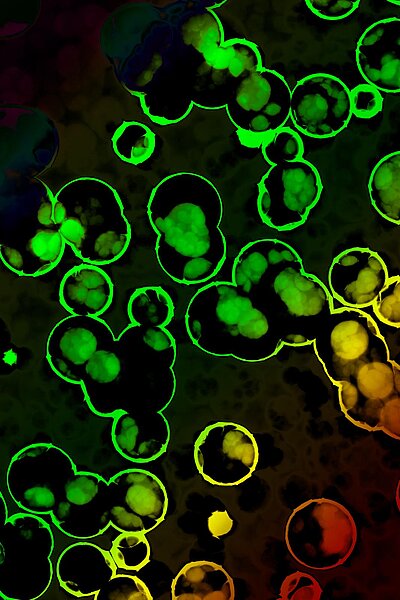Prebiotics

You may have heard of prebiotics, which are often offered as food supplements for humans. But did you know that prebiotics can also be beneficial for dogs? In this article, you'll find out what prebiotics are, how they can support your dog's health and what advantages and disadvantages they have.
What are prebiotics?
Prebiotics are indigestible dietary fibers that promote the growth of beneficial bacteria in the intestine. These bacteria are also known as probiotic microorganisms and, together with other microbes, form the intestinal flora. The intestinal flora is important for your dog's digestion, immune system and well-being.
Prebiotics occur naturally in some foods, such as chicory, asparagus, bananas and garlic. However, they can also be fed as powders or tablets. Prebiotics should not be confused with probiotics, which contain live bacteria and can also influence the intestinal flora.
What are the benefits of prebiotics for dogs?
Prebiotics can have various positive effects on your dog's health. For example, they can:
- Improve digestion by regulating bowel movements, reducing bloating and preventing diarrhea or constipation.
- Strengthen the immune system by increasing the intestinal defenses and inhibiting inflammation.
- Reduce the risk of infection by preventing or reducing the growth of harmful bacteria or fungi in the gut.
- Control weight by promoting a feeling of satiety and stabilizing blood sugar levels.
- Improve mood by stimulating the production of serotonin and other neurotransmitters in the gut that affect your dog's behavior and emotions.
What are the disadvantages of prebiotics for dogs?
Prebiotics are generally well tolerated and safe for dogs. However, they can also have some unwanted side effects. For example, they can:
- Cause gastrointestinal discomfort, such as nausea, vomiting or diarrhea. This can occur especially if the dosage is too high or if there is a sudden change in diet.
- Trigger allergic reactions, such as skin rashes, itching or breathing difficulties. This can happen especially in dogs that are sensitive to certain ingredients.
- Interfere with the effect of medication by altering its absorption or breakdown in the intestine. This can happen especially in dogs that are chronically ill or require special therapy.
How can you use prebiotics for your dog?
If you want to use prebiotics for your dog, there are a few points you should bear in mind. For example, you should:
- Consult your vet before you start feeding them. He or she can tell you whether prebiotics are suitable for your dog and what dosage and duration you should choose.
- Start feeding slowly and increase gradually. This way you can get your dog used to the new fibre and avoid or minimize possible side effects.
- Check the quality of the prebiotics and only buy products from reputable manufacturers. This way you can ensure that the prebiotics are pure and effective and do not contain any harmful additives.
Prebiotics are dietary fibers that promote the growth of good intestinal bacteria. They improve digestion, strengthen the immune system and can promote the well-being of dogs. They are found in foods such as chicory or bananas and can also be supplied in powder or tablet form. There are positive effects such as better digestion, a strengthened immune system and weight control. Possible side effects include gastrointestinal complaints and allergic reactions. A vet should be consulted before use and the introduction should be slow. It is important to choose high-quality products from reputable manufacturers.
If you notice any signs of hypersensitivity or poisoning in your dog, you should see your vet immediately. We are not a substitute for a vet, but we try to be as accurate as possible. Every dog reacts differently and we recommend you get a second opinion or consult your vet if in doubt.
Stay healthy and take good care of your four-legged friend!😊